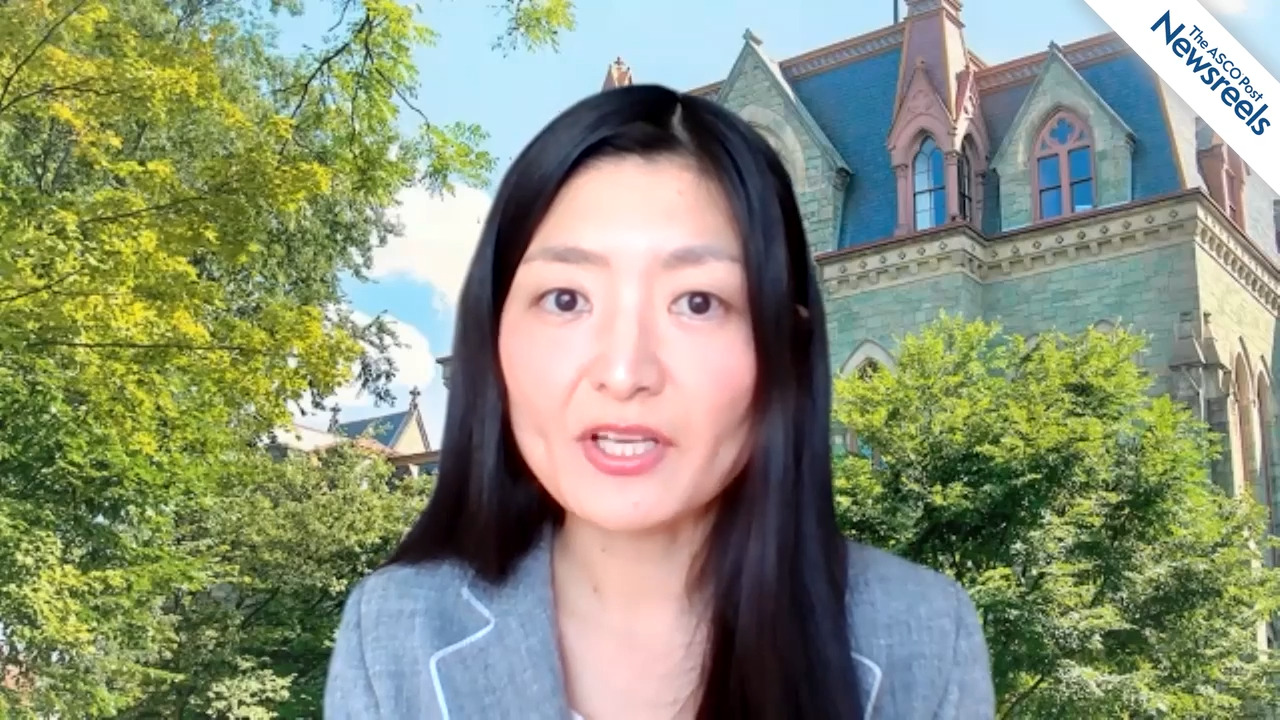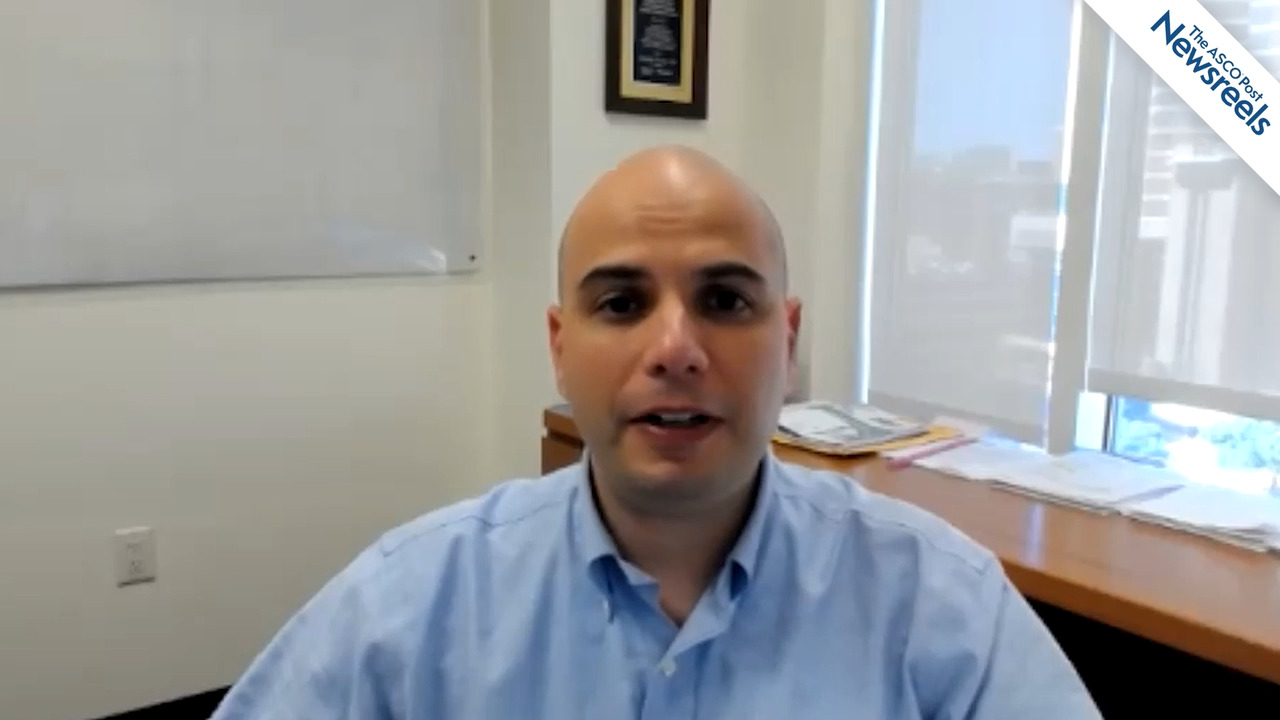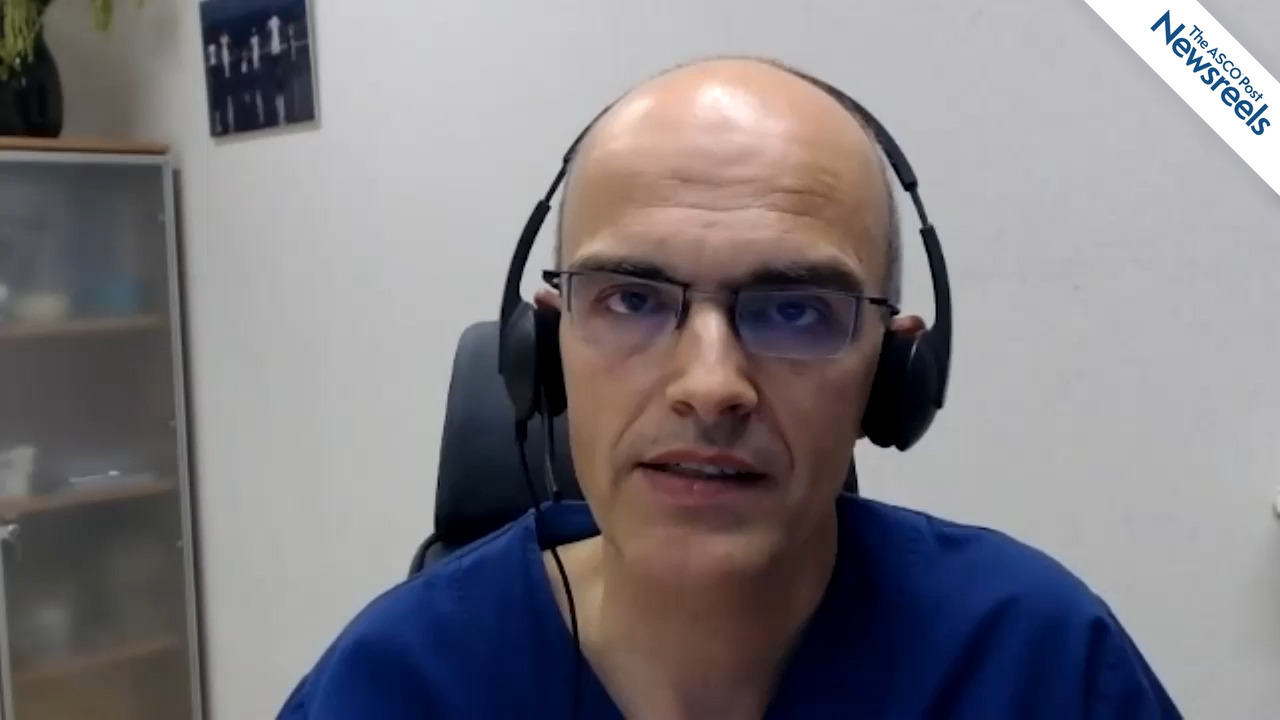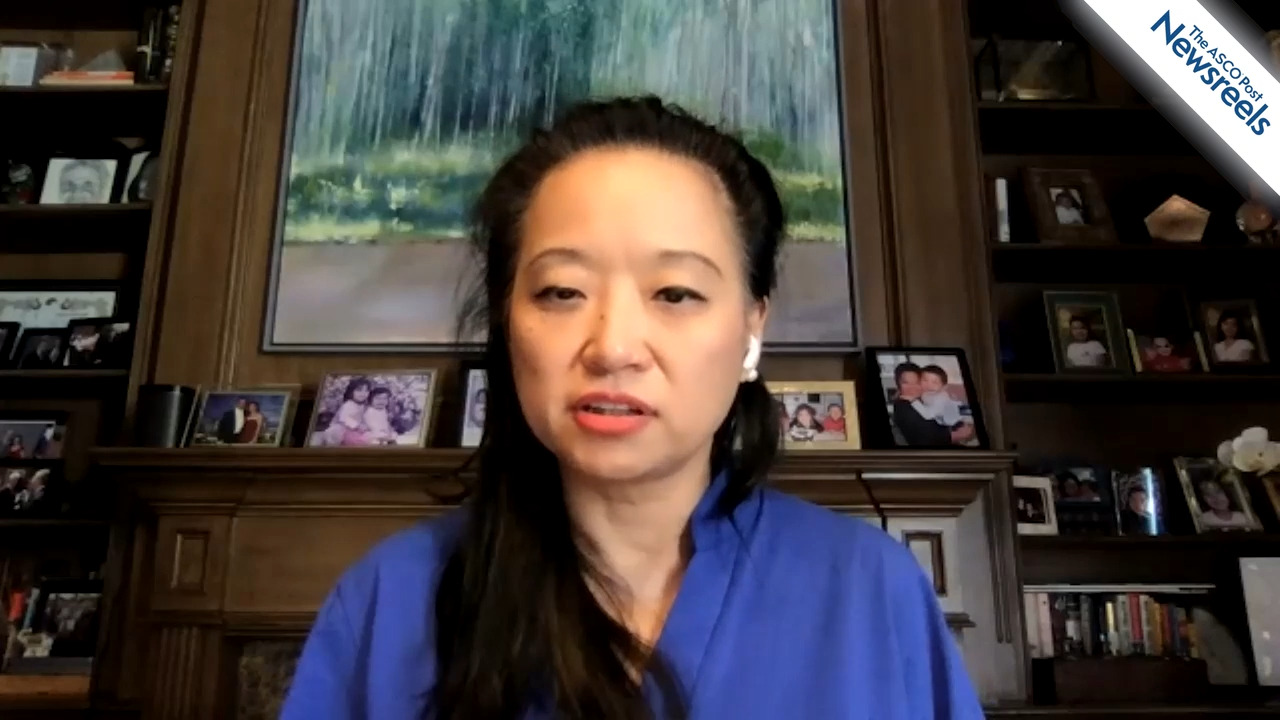Kim A. Reiss, MD, on HER2-Overexpressing Solid Tumors: First-in-Human Study of Anti-HER2 CAR Macrophages
SITC 2021
Kim A. Reiss, MD, of the University of Pennsylvania, discusses results of a phase I trial of a CAR-M engineered macrophage cancer therapy, known as CT-0508, for patients with solid tumors that overexpress HER2. CAR-M, designed to exploit the natural role of macrophages to initiate an antitumor response, is currently under study at multiple clinical sites (Abstract 951).
The ASCO Post Staff
Hannah E. Dzimitrowicz, MD, of Duke Cancer Center, discusses study results showing that in patients with melanoma and renal cell cancer receiving immune checkpoint inhibitor therapy, the COVID-19 vaccination appears to be well tolerated and safe. A higher rate of post-vaccination symptoms reported in these patients is likely related to more frequent visits compared with controls (Abstract 625).
The ASCO Post Staff
Yuki Muroyama, MD, PhD, of the University of Pennsylvania Perelman School of Medicine, discusses the interaction between the immune system and a novel marker—T-cell DNA damage and repair response—to understand how that interaction may affect immune cell biology and therapeutic response (Abstract 310).
The ASCO Post Staff
Mehmet Altan, MD, of The University of Texas MD Anderson Cancer Center, discusses findings from a phase Ib dose-escalation study, which showed early evidence of activity for NKTR-255, an investigational IL-15 receptor agonist, plus cetuximab in patients with solid tumors. Treatment appeared to lead to expansion and proliferation of NK and CD8+ cells (Abstract 957).
The ASCO Post Staff
Hans Wildiers, MD, of University Hospitals Leuven, discusses the final results from the phase IIb AIPAC study, which suggested that eftilagimod added to paclitaxel may be of benefit to patients older than 65 years with hormone receptor–positive, HER2-negative metastatic breast cancer after endocrine-based therapy. Eftilagimod, which is a first-in-class antigen presenting cell activator, appeared to increase circulating CD4/CD8 T cells, which correlated to improved overall survival (Abstract 948).
The ASCO Post Staff
Lynda Chin, MD, of the University of Texas, Austin Dell Medical School and Apricity Health, discusses precision medicine, barriers to its progress, and the challenges that must be met to facilitate better outcomes for patients. Building evidence and trust is key, Dr. Chin explains, as is developing an infrastructure that allows more clinicians to take part in the process.





